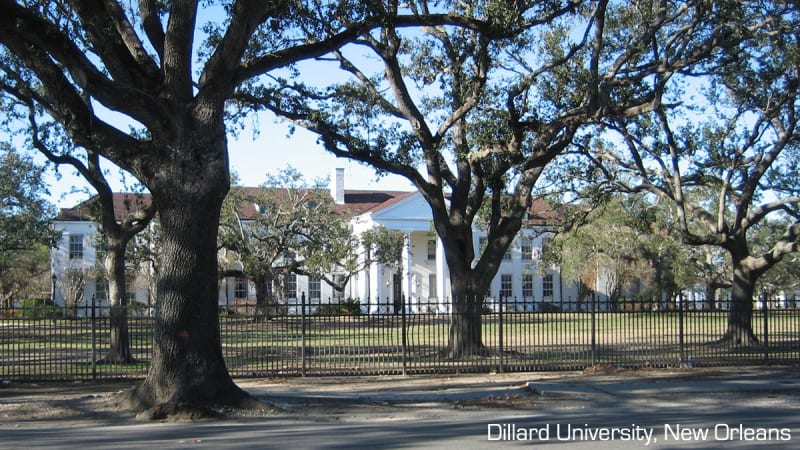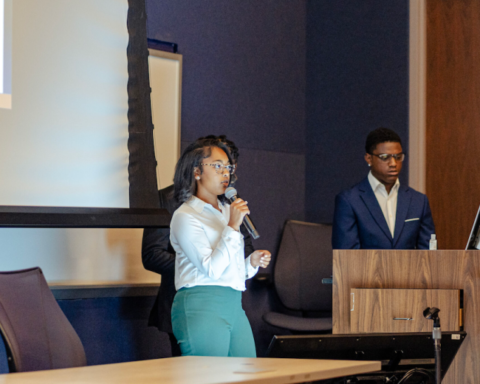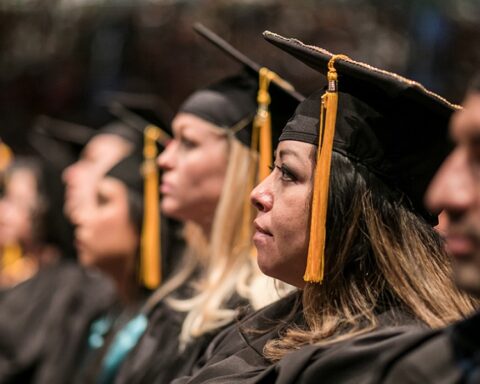By Chris Hurt
Changing the dynamics on rankings, AcademicInfluence uses a new algorithm to measure institutional support.
A No. 16 ranking among peers might be great, even if that No. 60 ranking isn’t so hot. One way or another, colleges and universities always find a way to put a spin on national ratings to make their institutions more attractive. After all, administrators, students and prospective students do go to them for bragging rights and even for guidance. But are annual updates from U.S. News & World Report and others really that accurate? There has been much debate, including the critiques of scholar Malcolm Gladwell.
One site trying to change the way rankings are determined and funneled out is AcademicInfluence.com, which is led by a number of higher education and technology influencers. Its machine-learning algorithms cull data from scores of online sources to “create a map of academic influence that provides students with better rankings for a better education.” Citing Gladwell’s work, it says it is trying to take bias out of the equation by making its processes truly transparent and objective.
Its latest release, a look at the institutions that are the best at “Academic Stewardship” (not necessarily the best colleges in the nation) features a group of unexpected but highly influential colleges that are truly preparing their students for the future by offering them transformational supports and strong pathways to careers. In other words, they say, these institutions are “making the most of what they have” now, properly keeping tabs on financial resources as well as having human resources departments devoted to ensuring success for their stakeholders. This group includes a large number of Historically Black Colleges and Universities, as well as small privates that are difference makers.
“The upshot is that many of the schools that rank highly in academic stewardship are HBCUs as well as those in smaller towns and rural areas, which might otherwise lead some people to overlook them in favor of so-called ‘elite’ schools,” says Dr. Jed Macosko, academic director of AcademicInfluence.com and Wake Forest University professor of physics. “But we show why the smart use of an institution’s resources through committed investment in students who need more from their school is a better measure of excellence. This is why we want to bring attention to academic stewardship and the schools that exemplify this virtue.”
No. 1 on its list is Fisk University in Tennessee, which rates in the top five in several categories including Most Influential HBCUs over the past two decades (No. 4) and is one of its state’s best small colleges and universities and best liberal arts colleges of 2021 (No. 3 in each). Like the rest on the list, fluff and luxury don’t really matter at Fisk, which authors say is “unpretentious” and does a wonderful job of meeting student needs.
The next best is Hampshire College in western Massachusetts, an institution without grading that has had its struggles through the past decade financially and with job cuts but is making a comeback behind President Ed Wingenbach. It is more than halfway home on a transformative $60 million fundraising campaign in an effort to build back enrollment and revamp curriculum and just received a $5 million donation. AcademicInfluence not only ranks it in the Top 10 best liberal arts colleges and universities of 2021 but also in the best small colleges overall.
At No. 3 is the very affordable Tougaloo College in Mississippi, which AcademicInfluence rates as the best private college, the best small college and the best liberal arts college in the state. Its sphere of influence includes a more than five-decade-long partnership agreement with Brown University, where students can take part in courses and fellowships at the Ivy League institution. Recently, Netflix CEO Reed Hastings and wife Patricia Quillin made a $10 million donation to support it.
Here is the list of the top 50:
- Fisk University (Tennessee)
- Hampshire College (Massachusetts)
- Tougaloo College (Mississippi)
- New College of Florida
- Rust College (Mississippi)
- Wiley College (Texas)
- William Jewell College (Missouri)
- Goshen College (Indiana)
- Hollins University (Virginia)
- Olivet College (Michigan)
- Menlo College (California)
- Houghton College (New York)
- Beloit College (Wisconsin)
- Dillard University (Louisiana)
- Earlham College (Indiana)
- Harvey Mudd College (California)
- University of Jamestown (North Dakota)
- Reed College (Oregon)
- Bennington College (Vermont)
- New Mexico Institute of Mining and Technology
- Hendrix College (Arkansas)
- Millsaps College (Mississippi)
- Wabash College (Indiana)
- Georgetown College (Kentucky)
- California Institute of Technology
- West Virginia Wesleyan University
- Hiram College (Ohio)
- Knox College (Illinois)
- Haverford College (Pennsylvania)
- Virginia Union University
- Monmouth College (Illinois)
- Transylvania University (Kentucky)
- Elmira College (New York)
- Eastern Mennonite University (Harrisburg)
- Shaw University (North Carolina)
- Pacific Union College (California)
- Cornell College (Iowa)
- Washington & Jefferson College (Pennsylvania)
- Ripon College (Wisconsin)
- Agnes Scott College (Georgia)
- Chestnut Hill College (Pennsylvania)
- Hanover College (Indiana)
- Trinity Washington University (Washington, DC)
- Albion College (Michigan)
- Cazenovia College (New York)
- Ohio Wesleyan University
- Olgethorpe University (Georgia)
- Friends University (Kansas)
- Rockford University (Illinois)
- Illinois College





